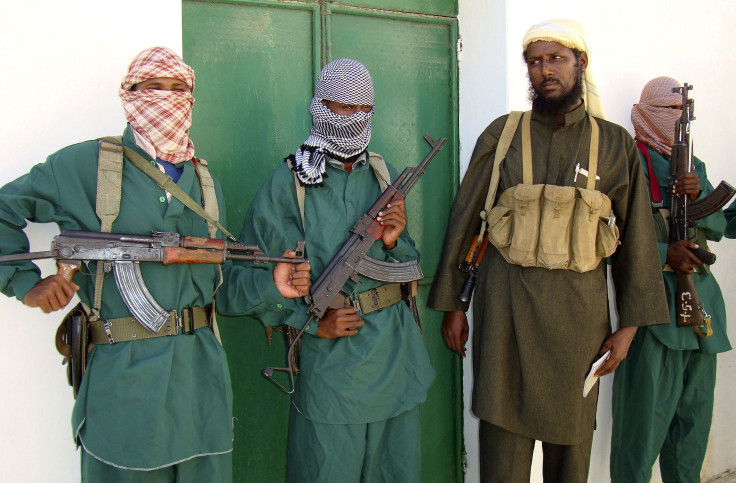German Al-Shabab Suspects Returning From Kenya Arrested At Frankfurt Airport

Three German nationals, suspected of being members of Somalia's al-Shabab Islamist militant group, were arrested at Frankfurt airport, German officials announced Monday. The men were reportedly flying back home from Kenya.
"Three suspects were arrested at Frankfurt airport," on Saturday, a spokeswoman for Germany’s federal prosecutor service, told Agence France-Presse, or AFP, in a report.
The report added, citing SWR, a public broadcaster in Germany, that the men had returned to the country because they no longer wanted to be involved in combat for al-Shabab, adding that there were no indications that the three men were planning attacks in Germany.
Al-Shabab, meaning “The Youth,” is a radical Islamist group operating in Somalia and is al-Qaida’s main affiliate on the continent. Claiming to be waging a jihad against the “enemies of Islam,” the group has carried out regular guerrilla attacks against government institutions and international forces based in the capital Mogadishu since 2006, and controls large portions of territory in rural Somalia.
The group has also begun to frequently stage attacks against countries that contribute to the 22,000 United Nations-backed African Union troops, which have kept al-Shabab from taking over Somalia since 2007.
Neighboring Kenya has been specially targeted by the group. One of the country’s worst terrorist attacks took place last September in Nairobi’s Westgate shopping mall, frequented by foreign nationals in the Kenyan capital, where at least 67 people were killed by heavily armed gunmen.
On Sept. 1, a U.S. drone strike killed al-Shabab leader Ahmed Abdi Godane, also known as Moktar Ali Zubair, who had reportedly received training and fought in Afghanistan with al-Qaida. U.S. authorities claimed the strike had caused a major symbolic and operational loss for the terrorist organization with many suggesting that Godane’s death could lead to al-Shabab’s fragmentation.
© Copyright IBTimes 2025. All rights reserved.





















